Voice of Experience: Amanda Blanc, CEO of Commercial Lines and Personal Intermediary, AXA Insurance UK
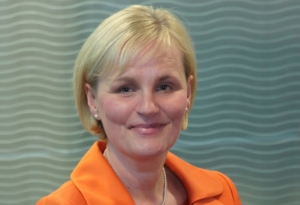 Amanda Blanc began her career in 1989 as the first female and youngest branch manager at Commercial Union. She achieved many other top positions during the following years, which taught her one important lesson: a lack of confidence can stop many women from reaching their true dreams.
Amanda Blanc began her career in 1989 as the first female and youngest branch manager at Commercial Union. She achieved many other top positions during the following years, which taught her one important lesson: a lack of confidence can stop many women from reaching their true dreams.
When she mentors other women she realizes that, when looking at the list of competencies in job descriptions, they focus on that one particular qualification that they do not meet. In contrast men will feel qualified for the job if they meet six out of ten competencies.
Women in the insurance industry have several barriers which they must overcome, and confidence is one of the qualifications that keeps this business, as Blanc described, “a man’s world, particularly at executive level.”
However, Blanc’s belief in her potential has led her to work as a consultant for Ernst & Young, as the regional director for AXA’s commercial intermediary business, as the distribution and customer services director at Groupama in 2003, as Chief Executive of Towergate Retail Division in The Towergate Partnership and, starting in 2011, as CEO of Commercial Lines and Personal Intermediary in AXA.
Her confidence in her abilities is only one of the reasons for her success. “I don’t do regrets or looking back. You just need to learn from any mistakes and move on without dwelling,” she explained.
Insurance and the Financial Crisis
Blanc identifies transparency as one of the key issues that the insurance industry must face, and knows that AXA’s effort to be more transparent with their customers is an important challenge.
“Insurance is notorious for indulging in acronyms and technicalities that are all but impenetrable to the man on the street. We are working on being much clearer, in layman’s terms, about what is and isn’t covered in a policy and what steps our customers can take to ensure that they do not breach any of the policy conditions. It might seem like a small thing, which it is, but it is pretty fundamental. I want our customers to be absolutely clear about what it is they are buying and how they use the policy when they need to.”
She also recognizes that “banking has received most of the public vitriol following the financial crisis, but the wider financial services community had much to feel sheepish about too, and insurance has certainly not been immune to some of the behaviours that have had such a catastrophic impact on banking. As financial institutions, we have lost the faith and trust of our customers, [whose] starting point now is that we are going to fleece them, and so they treat us accordingly. That is a shocking situation to find ourselves in and one that we must change.”
“It’s not going to change with lip service or marketing ploys. The only way we are going to get the customer back onside is by changing the way we behave, creating business models that deliver shareholder value through good customer experience and making sure that the necessary change in culture genuinely permeates throughout the business,” Blanc said.
A Dream Job in a Male-Dominated Industry
Blanc advises women who wish to enter the industry to “have confidence in [their] abilities and understand that nobody is ever really ready to take on a role, particularly at a senior level. You only ever find out if you take that leap and have the confidence to try.”
Another suggestion for women who wish to succeed in the insurance industry is to understand the politics of the particular workplace, which is “not about having a Machiavellian approach to work but understanding the need to prepare properly and to have briefed certain individuals and got them onside before entering a meeting.”
Women who focus on the fact that they are women trying to succeed in a male-dominated industry have it much more difficult. “I would advise that we focus less on the fact that we are women and more on creating true parity with our male colleagues. Women will only gain that parity if they can show that they have the ability to compete and succeed without the assistance of quotas and other such vehicles. If women are placed in positions of power through quotas, there will always be the suspicion that they are not there on merit but for political reasons and that is, to my mind, potentially very damaging for the long-term prospects of women in the boardroom.”
Equal Opportunities
Blanc works in a company that shares her concerns for equality. AXA UK nominated a senior executive as their Diversity Sponsor, and last year organized their first global AXA Women’s Conference. “This gets buy-in at the highest level with our Group CEO and Chairman, Henri de Castries joining 115 attendees from across the world for the meeting in Paris. The conference is designed to foster networking among senior executive men and women and identify how we can better promote greater diversity in the business.”
What was most interesting about the conference was that women did not focus on how difficult it is for them to be successful in this business, but rather on how collaboration between men and women could help, as Blanc explained, “create that parity we need.”
Also, AXA UK’s Diversity Forum “has a representative from each part of the business focusing mainly on gender diversity. The purpose of this is to ensure that diversity does not fall into the trap of being the responsibility of HR but becomes an integral part of the whole business’ objectives.”
Blanc feels positive about their maternity coaching, which helps senior women before their maternity leave period and during a stress-free return to work. The company is organizing three ‘High Potential Female Career sessions’ scheduled for this year, and understands that diversity is a part of their culture rather than a goal they must achieve.
Amanda Blanc advises women “to seek male mentors too, [because] if we stick to our own gender groups we are never going to change things. There needs to be greater collaboration between the two and that is what I would like to focus on. It’s not a war; we should all be working together. There will be men who still genuinely believe that women are not their peers in the business world but they will fall victim to natural selection. Their time is gone and those that are still out there are a relic of the past. They won’t survive for much longer; I’m sure of that.”
By Irene Solaz

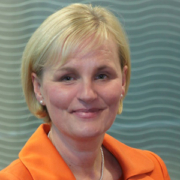
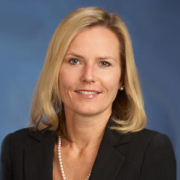


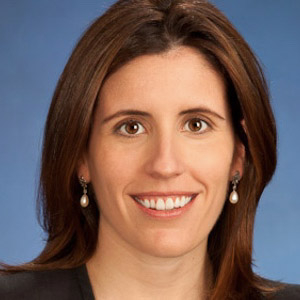
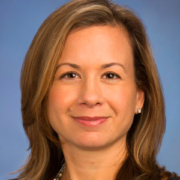
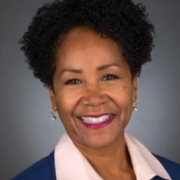
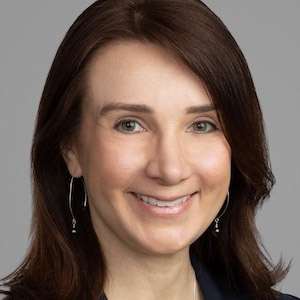
Great Article. Let’s get some more red suits in the board room( Mary Davis-Holt)